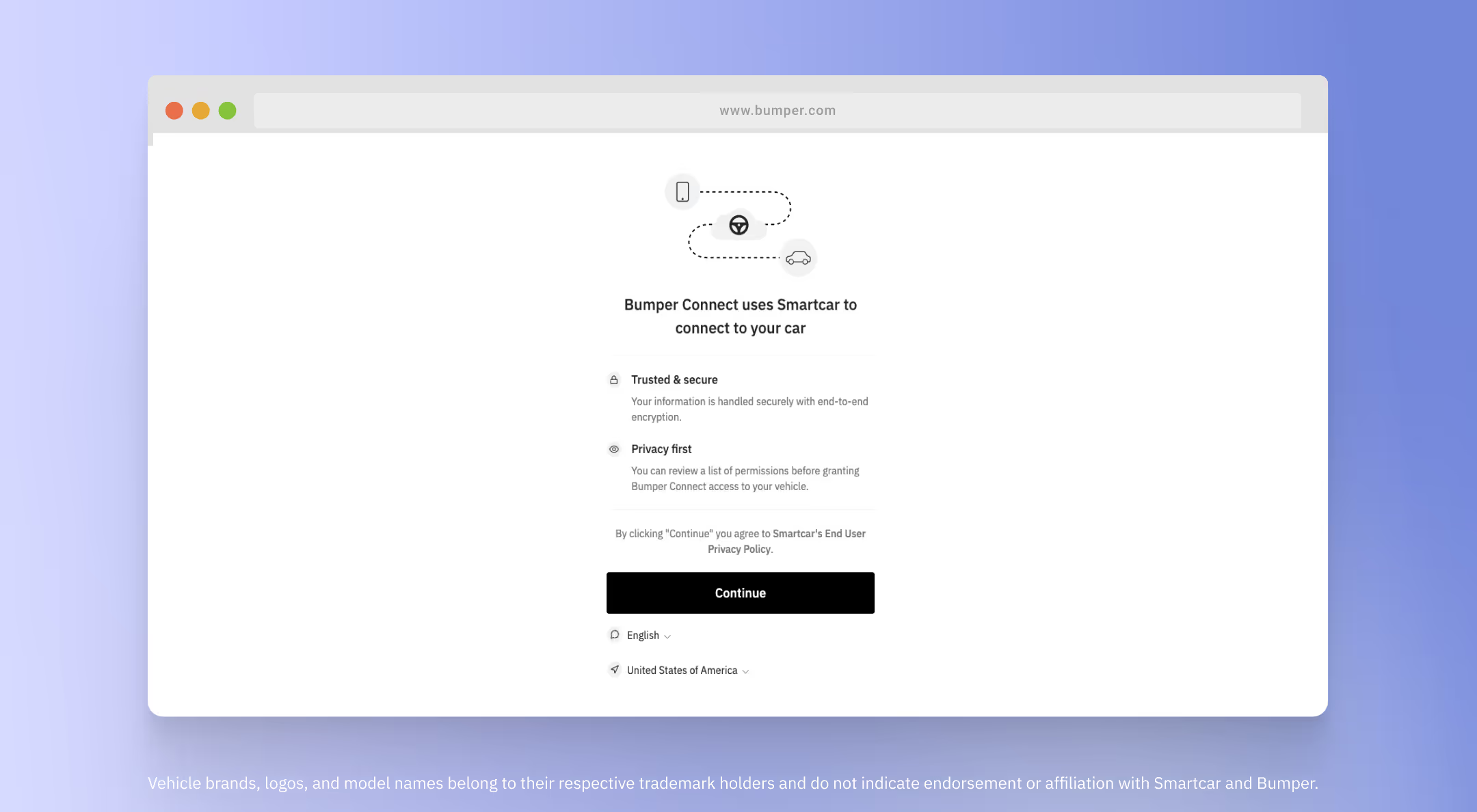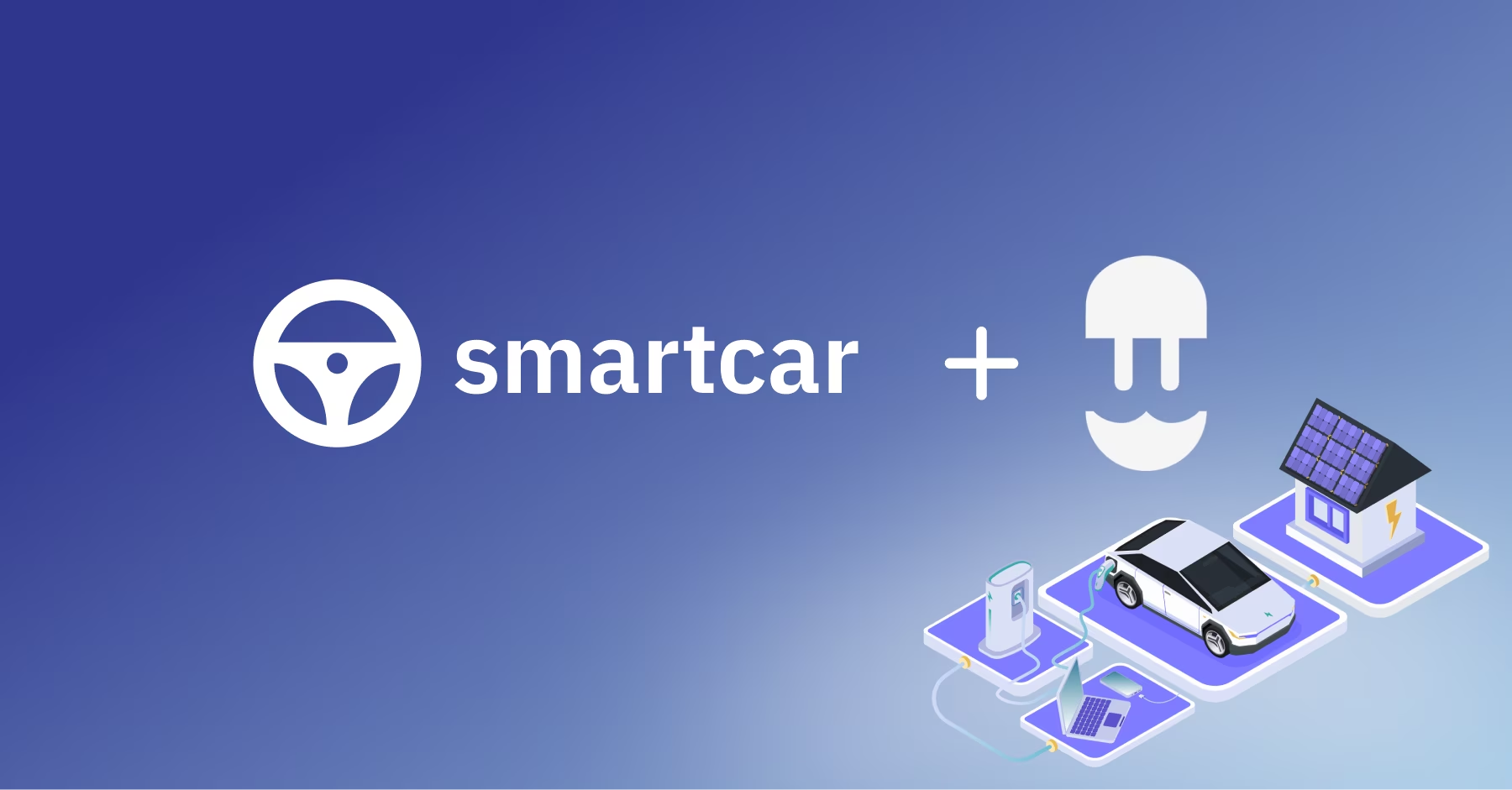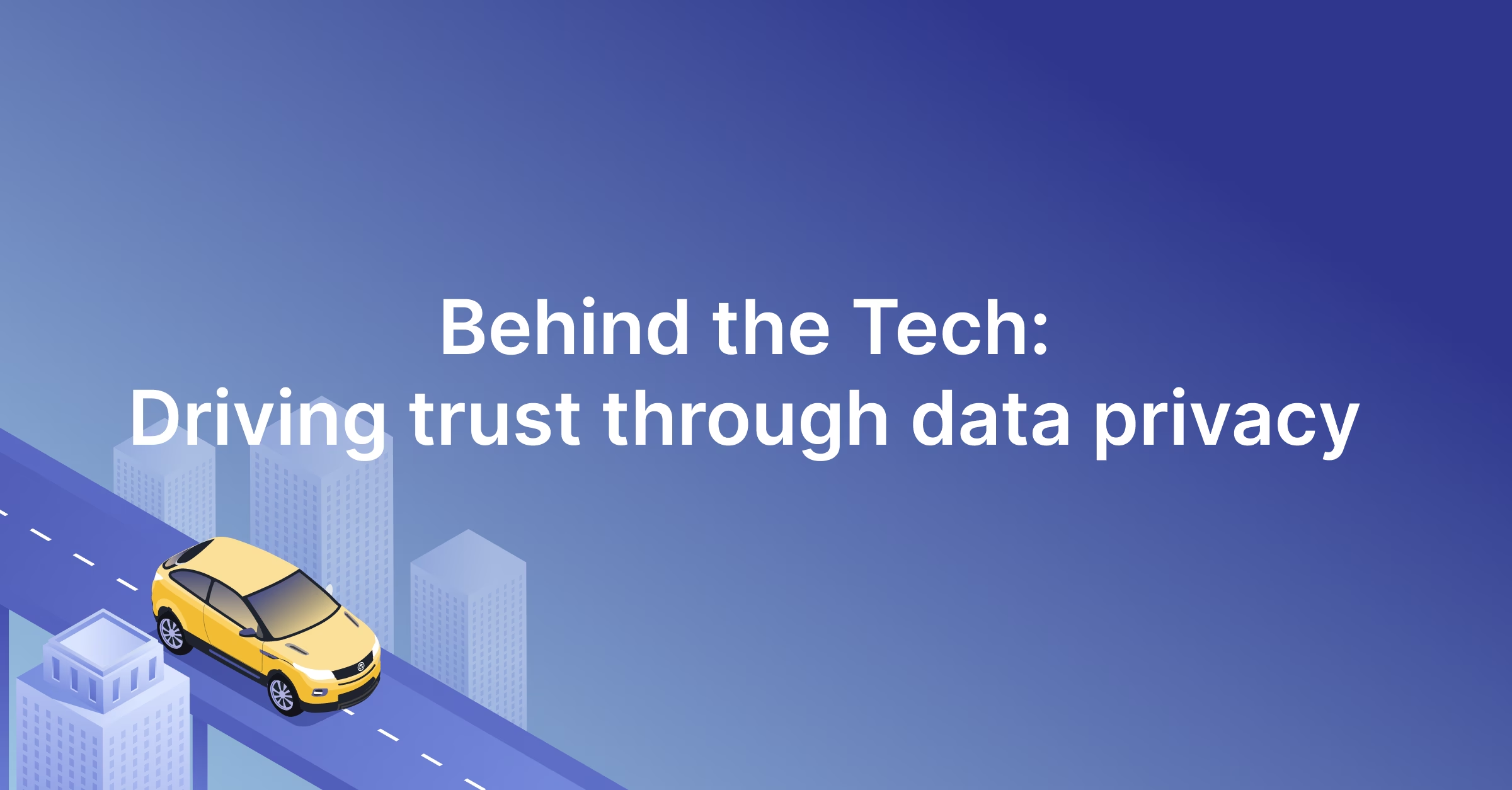Almost all new cars shipped today have embedded telematics functionalities. These connected cars are often described as smartphones on wheels, but they’re more than that.
Beyond supporting in-vehicle applications like the ones we typically see in infotainment systems, connected cars give vehicle and fleet owners visibility into their own vehicle data.
Cars are no longer a black box of information that calls for an OBD-II device and a service technician to gain insight into. With vehicle connectivity, drivers have the opportunity to take charge of their vehicle ownership experience as soon as they make a purchase.
That’s where auto dealership software comes in.
With secure and seamless vehicle communication, auto dealerships today can completely redefine engagement with potential and existing customers.
No more blindly spending money on generic one-to-many relationship-building tactics that yield low conversion rates.
A connected car API platform like Smartcar enables auto dealerships to scale personalized marketing, boost transactions, and build customer loyalty.
Why use the Smartcar API?
The Smartcar API gives auto dealership software a standardized platform to access important vehicle diagnostics data across vehicle makes and models. Our platform streamlines these integrations so developers don’t have to manage fragmented OEM partnerships, developer documentation, and developer APIs.
.avif)
Beyond standardizing data returned by endpoints across brands, the Smartcar API also gives auto dealerships pre-built user consent management, API tokens management, and security infrastructure to power an application or dealer management system that’s optimized for industry-grade compliance.
💡 We’ve added a free API vendor assessment checklist that you can save at the bottom of this article.
What do these API benefits do for you?
Generate more revenue
Connected car data gives an auto dealer the opportunity to turn their software application or dealership management system into a long-term channel for conversion and growth. Increase the number of transactions you make with each customer by showing up in your marketing outreach with personalized messaging that gives drivers the “Aha!” moment they need. The trick is to engage with drivers at the right time so your offer is capturing their attention when it's top of mind — or to put it bluntly, when your customer has a tangible reason to care about what a car dealership has to say.
Instead of mass marketing incentives for car services to a huge email list, consider sending service reminders based on a vehicle’s tire pressure and adding a time-sensitive tire discount to the mix. Or imagine getting personalized ads on your dealership app on how to start the process of selling your car just as your car reaches a high mileage.
With a connected car API, you can adopt data-driven marketing strategies without having to worry about the complexities of standardizing vehicle data with an in-house developer team.
Show customers you care
Who do drivers trust to have with them throughout the vehicle ownership experience?
A survey by Deloitte says it's a close call between the dealerships where drivers service their vehicles, where they purchase their vehicles, and their car manufacturers. It all boils down to who drivers feel they can trust.
Connected car data helps an auto dealer develop tools and strategies that help customers better navigate the process of buying, maintaining, and selling their cars. Inventory levels are a big cause of concern for new and existing customers, inflating interest rates and the cost of vehicles themselves. On top of streamlining inventory management, vehicle telematics gives dealerships live vehicle data that can influence driver-specific decision-making and promotions.
You can appeal to a customer’s most urgent concerns with tailored incentives for regular vehicle maintenance, personalized offers for warranties, or holistic vehicle health information to inform drivers of their car’s potential trade-in value.
3 ways to use Smartcar for auto dealership software
With the Smartcar API, auto dealerships can use scheduled webhooks to enhance the customer-facing application experience with a ‘set it and forget it’ approach to vehicle alerts and notifications. Scheduled webhooks fetch recurring data from vehicles connected to an app based on a set schedule, powering a more integrated and consistent dealership management system.
Auto dealerships can use webhooks to optimize the customer experience by automatically retrieving data like a vehicle’s location, odometer, fuel tank level, and tire pressure daily or weekly.
There are a few important use cases an auto dealer can unlock by automatically retrieving data from customer vehicles daily or weekly:
- Predictive maintenance alerts
Research by Cox Automotive found that 48% of vehicle owners were unsatisfied with their service at an auto dealership because of factors like difficulty scheduling an appointment and servicing taking longer than expected.
Smartcar enables predictive maintenance notifications, allowing customers more time to schedule service appointments in advance instead of waiting until an issue snowballs into frustrating and time-consuming breakdowns. Not only does this increase customer satisfaction, it helps your service department boost productivity and operational efficiency.
Monitor vehicle mileage, tire pressure, fuel tank levels, and EV battery capacity on a recurring basis to get up-to-date visibility into vehicle health and performance. With Smartcar’s scheduled webhooks, you can then prompt an alert when these data points drop below a ‘healthy’ value.
Add a clear call-to-action to these predictive maintenance notifications and you’ll have a frictionless workflow directing customers to an appointment scheduler with minimal intervention from customer service representatives.
- Targeted warranty upsells
Consumers are becoming more mindful about what they’re spending on, and that means they’re becoming more receptive to shopping around for options they feel better represent their needs. Connected car data helps dealerships personalize warranty offers and drive targeted upsells.
The Smartcar API provides insight into customer information, like how a driver utilizes their vehicle, allowing dealerships to determine which warranty extension would benefit a customer most. Warranty providers do this today with our endpoints for a car’s mileage, fuel tank or state of charge, tire pressure, and engine oil life.
For example, a customer that onboards their vehicle to a dealership app via Smartcar can receive notifications of upcoming warranty expirations based on the number of miles driven. As this notification is triggered, dealerships can automate marketing communication that shows the customer potential upgrades based on their driving patterns or vehicle health.
- Increase car sales and trade-ins
Dealerships can use connected car data to equip customers with detailed insights into the used car they’re buying or selling. Businesses today use the Smartcar API to get accurate live metrics on a customer’s existing vehicle such as mileage, range estimates, and state of charge. Equipped with this visibility, you can engage customers who might be interested in trading their vehicles for new ones and adopt a proactive strategy for inventory management.
Based on a vehicle's connected car data, a dealership can suggest new car models for sale that align with a customer’s driving habits. You can also supplement this suggestion with an accurate trade-in valuation for an existing vehicle that customers can see immediately on the dealership app.
Setting up predictive alerts with scheduled webhooks
How can you get Smartcar’s scheduled webhooks ready for a dealership management solution?
To subscribe a customer vehicle to data retrieved by Smartcar’s scheduled webhooks, you’ll want to navigate to the ‘Webhooks’ section of the Smartcar dashboard to add your webhook. Set up the webhook by:
- Selecting the webhook type to “Scheduled”
- Setting how often you want to receive data
- Selecting which endpoints you want to receive data from
- Selecting the units you want to receive data
For the purpose of this article, we’ll assume that you already have a callback URI set up on your server and customer vehicles that are already onboarded via Smartcar Connect. If not, read our step-by-step tutorial on how to set up and verify Smartcar webhooks in your Smartcar dashboard!
After verifying your webhook, you can use the following code to subscribe to a vehicle.
The data will then be sent to the vehicle at the cadence that you've configured.
Once you’ve successfully subscribed a vehicle to your scheduled webhook, the payload response you get will look like this depending on the endpoints you selected.
Beyond the app: Expanding your customer experience
The data you retrieve via the Smartcar API doesn’t just translate into a better experience on a mobile application. You can integrate this data into existing customer communication channels and dealer management tools:
- Boosting your web experience:
You can integrate the Smartcar API into a customer-facing website to create a seamless online experience. Tap into the same data points that a mobile application would, driving traffic to your website with dealer management features like service reminders, appointment scheduling, warranty recommendations, and targeted promotions. You can use the Smartcar JavaScript SDK to collect user consent from a browser pop-up user window and authorize data sharing with customer vehicles.

- Powering text message marketing:
SMS marketing has big potential for dealerships, with considerably higher open rates on average than email marketing. If your dealership is currently or has plans to use a text messaging solution to engage with customers, you can still use the Smartcar API to collect data from customer vehicles upon getting their consent. Integration tools like Zapier can help you funnel Smartcar data into a customer relationship management system so you can use your SMS service to engage with a targeted cohort of customers, like sending maintenance scheduling reminders or special offers triggered by vehicle events.
- Personalizing email campaigns:
Like text messaging, the Smartcar API does not provide a direct integration with email services. However, dealerships can use the API to gather information or receive notifications on a customer’s vehicle periodically or after a specific event is triggered. You can then use tools like Zapier and an email API or service of your choice to set up campaign workflow conditions based on the vehicle triggers you’ve defined with the Smartcar API. This is a great way to integrate telematics-driven personalization into any of your existing email marketing or dealership operations efforts, whether it’s for seasonal new car promotions, trade-in offers, tailored warranty upsells, and more.
Power your auto dealership experience with a connected car API
Here are a few extra resources to help you evaluate a connected car API provider👇 You can also schedule a meeting with our team to explore incorporating Smartcar into your dealer management software and customer engagement solution!
- Our Build vs Buy guide for automotive businesses and developers
- Smartcar’s State of Connected Car Apps report exploring driver interest in independent automotive services and applications (Sneak peek: 64% of drivers we surveyed think that external applications provide better telematics features than their automaker’s applications.)
- A vendor selection checklist that you can use in discussions with connected car API vendors — more on this in our buyer's guide to connected car platforms.





.jpg)

